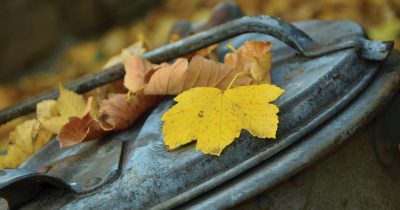
by: Ilse Strauss, Bridges for Peace
 Stinking trash heaps are traditionally not the first place one would expect to find anything of use. Israeli firm, UBQ Materials, begs to differ. In fact, according to Christopher Sveen, chief sustainability officer at UBQ, rotting landfills are the “mines of the future.”
Stinking trash heaps are traditionally not the first place one would expect to find anything of use. Israeli firm, UBQ Materials, begs to differ. In fact, according to Christopher Sveen, chief sustainability officer at UBQ, rotting landfills are the “mines of the future.”
The company operating from Israel’s Negev desert is currently perfecting waste-conversion technology to convert piles of organic household rubbish that usually end up in landfills into bio-based raw materials suitable to replace or supplement plastic or wood. The implication? Yesterday’s potato peels and chicken bones can become tomorrow’s furniture or plumbing pipes.
“We’re now able to take all these mountains of garbage—unsorted waste—and convert it to something useful, something that will actually benefit the environment,” explains Prof. Oded Shoseyov, a renowned Hebrew University of Jerusalem nano-biotechnology expert and inventor, and UBQ’s scientific adviser.
What sets UBQ apart is that its process to evaporate, separate and grind household waste into bio-pellets does not involve traditional approaches like water or burning. Moreover, the patented method leaves no residual waste, releases few pollutants and boasts high fuel efficiency, The Times of Israel reports.
The process has already proven its mettle. The UBQ waste conversion facility in the Negev desert breathes new life into up to 80% of the area’s household garbage into the bio-pellets used to manufacture commercial products.
Photo Credit: congerdesign/pixabay.com
All logos and trademarks in this site are property of their respective owner. All other materials are property of Bridges for Peace. Copyright © 2025.
Website Site Design by J-Town Internet Services Ltd. - Based in Jerusalem and Serving the World.